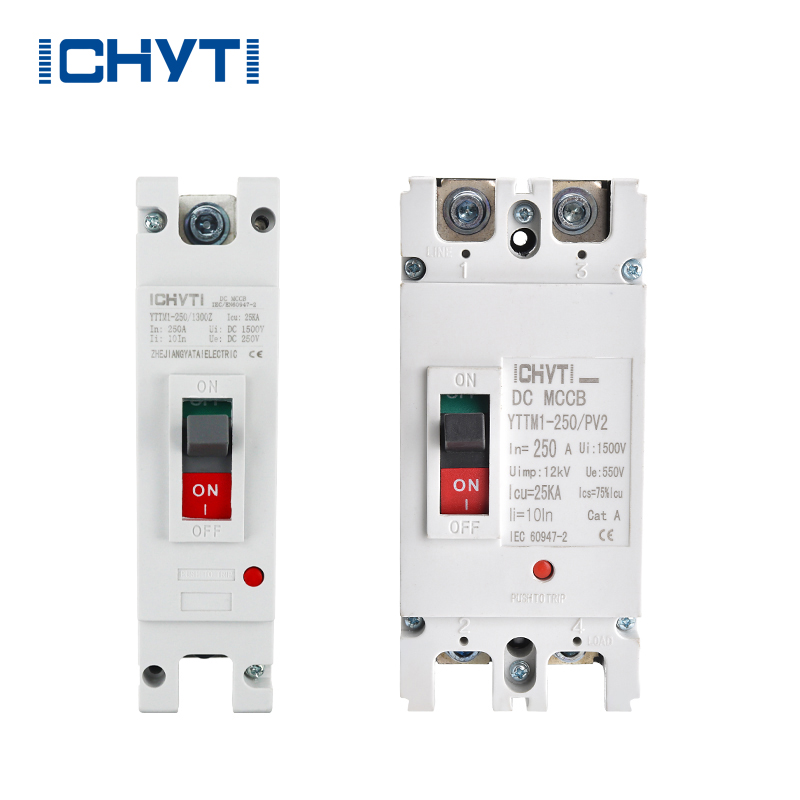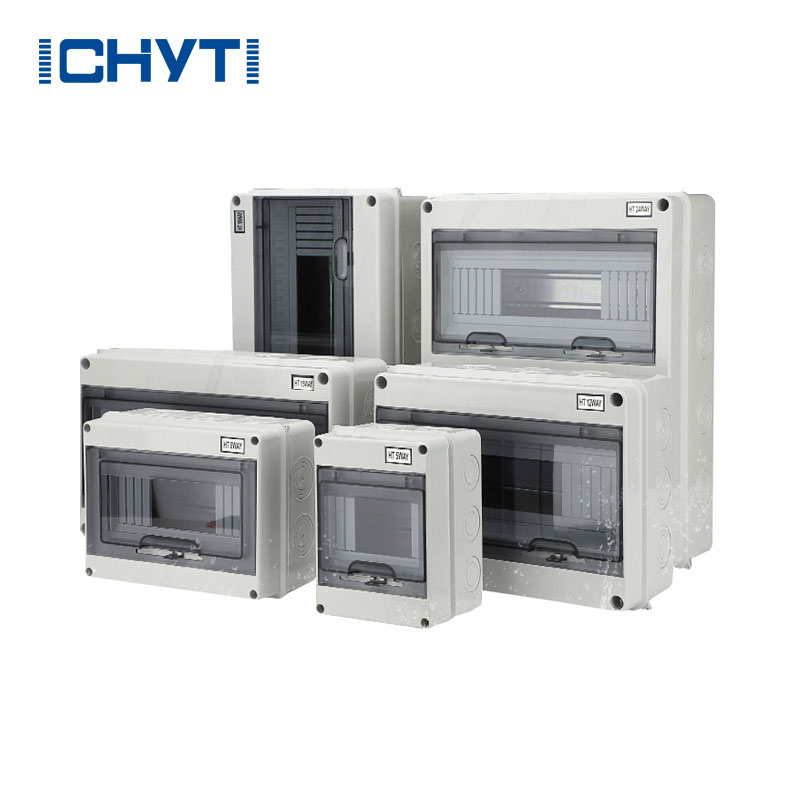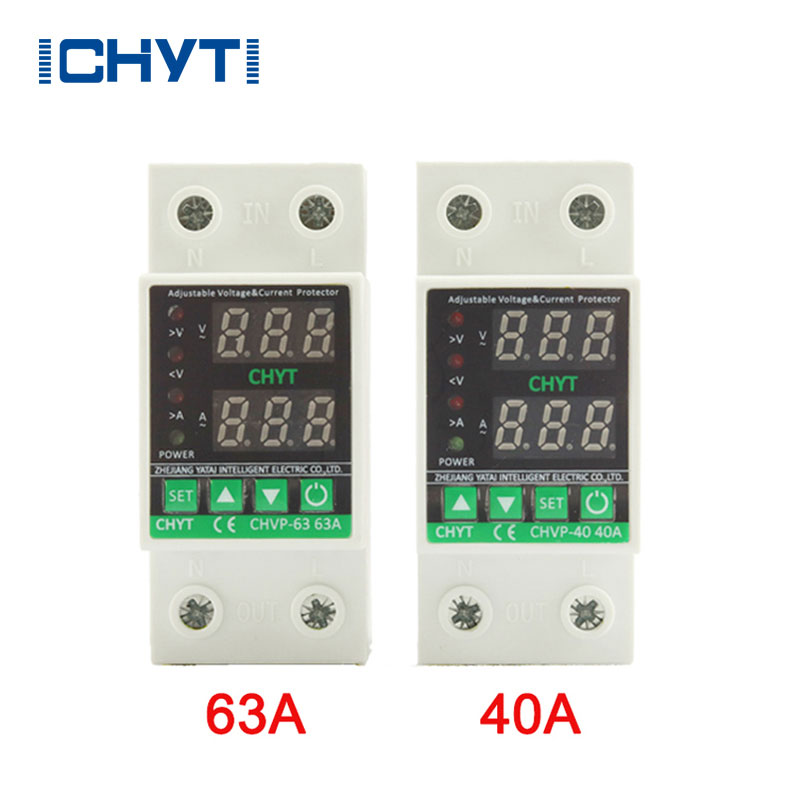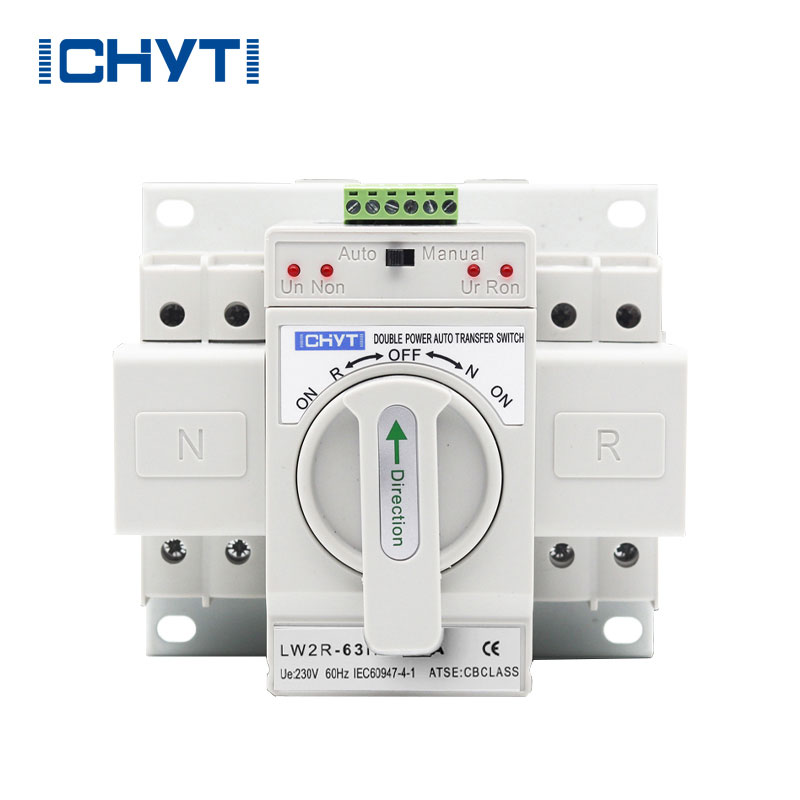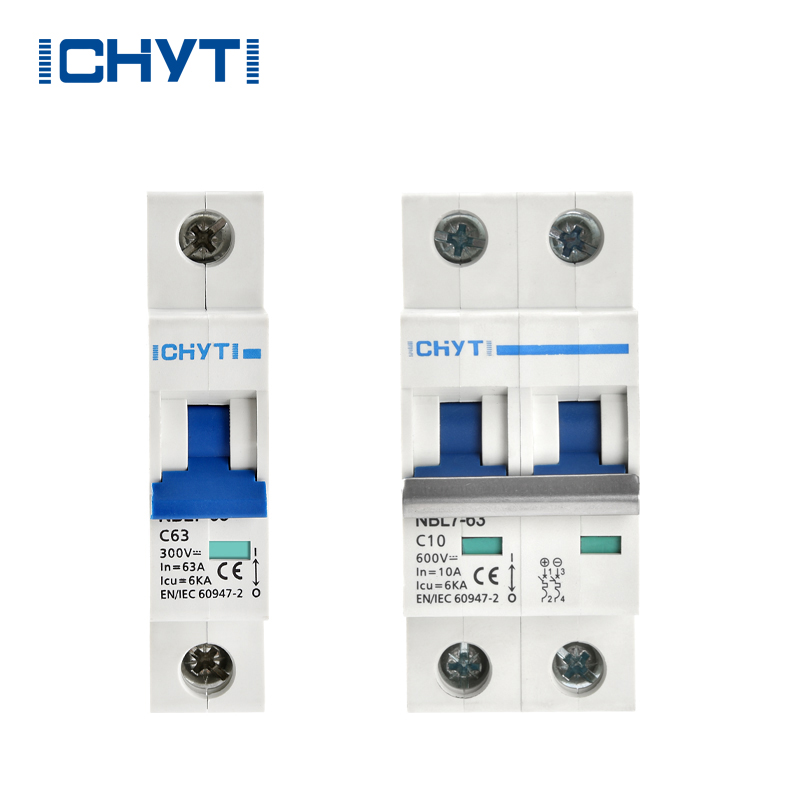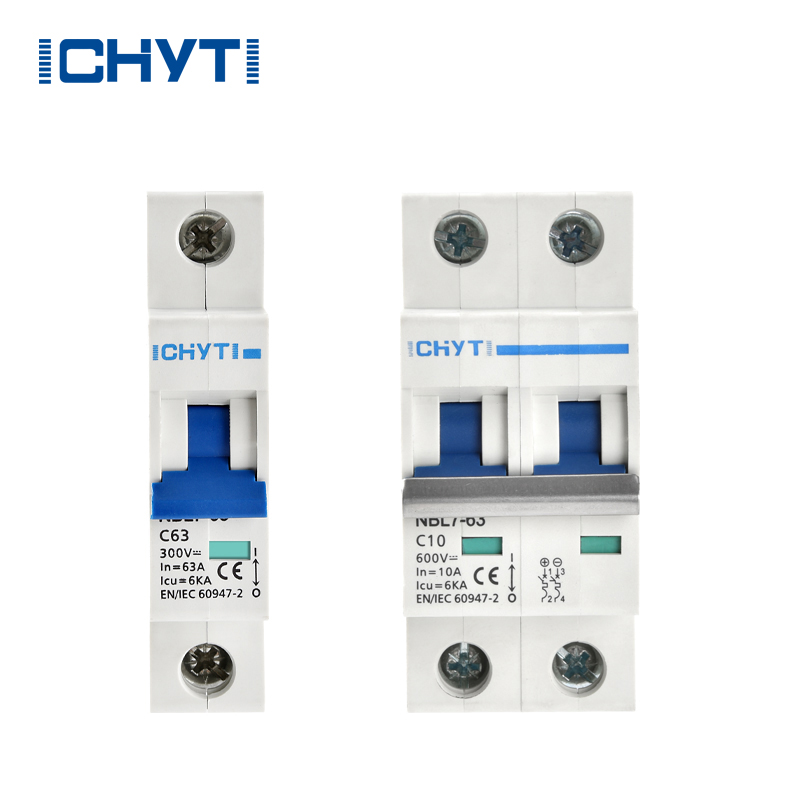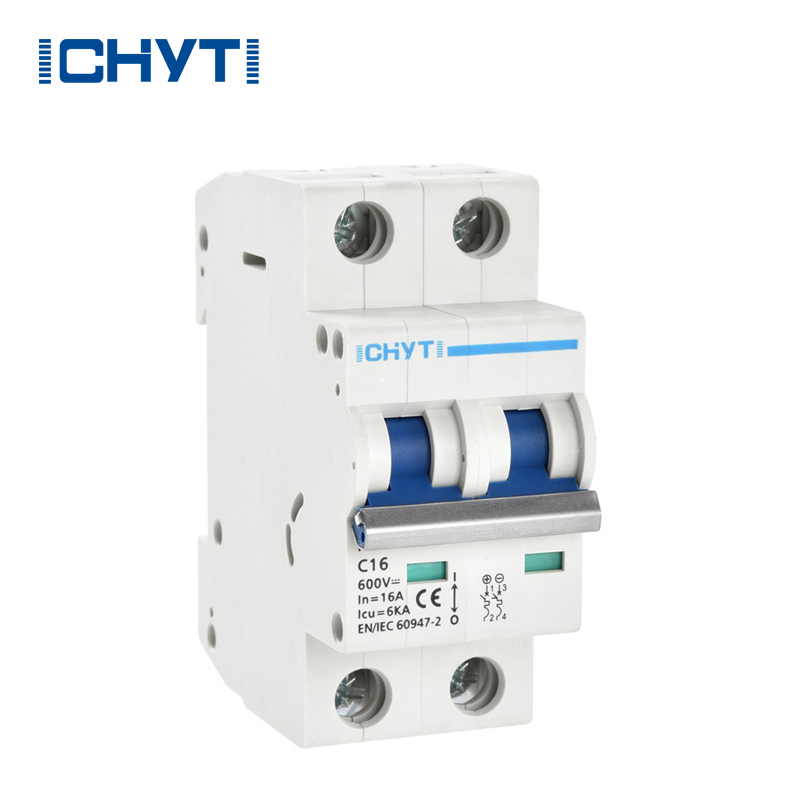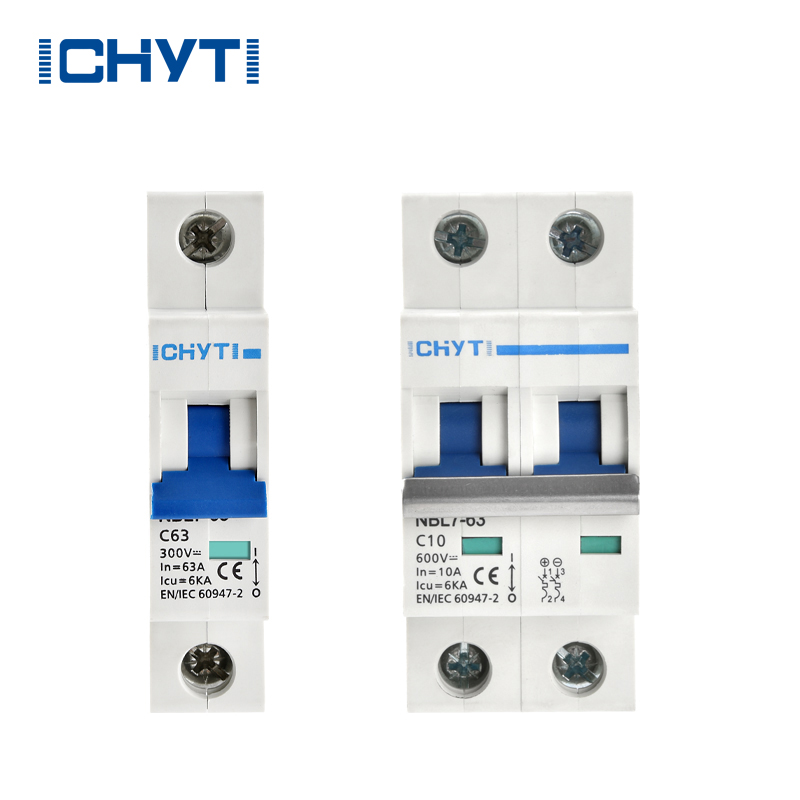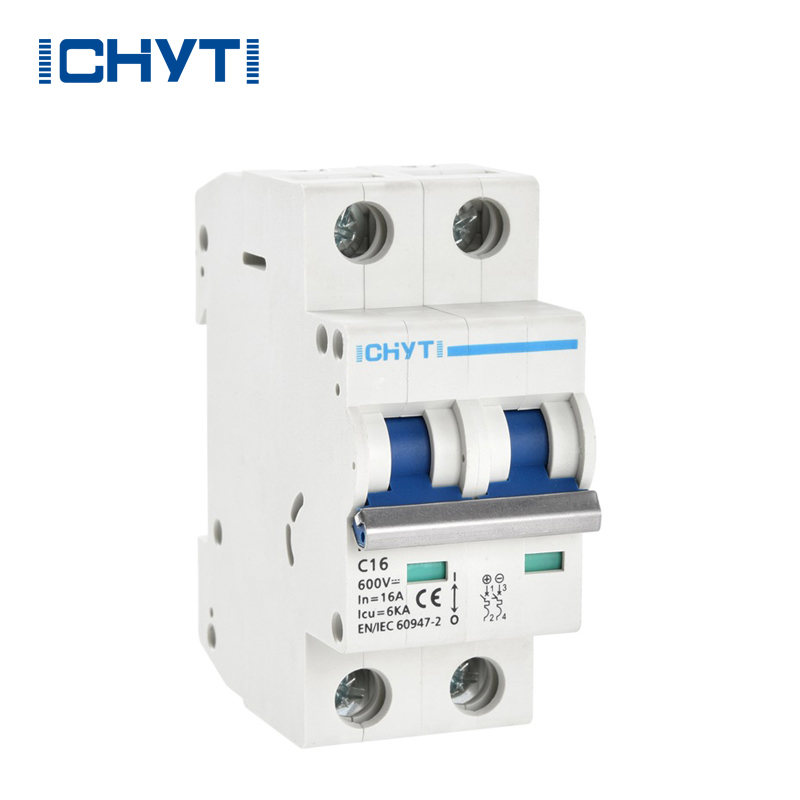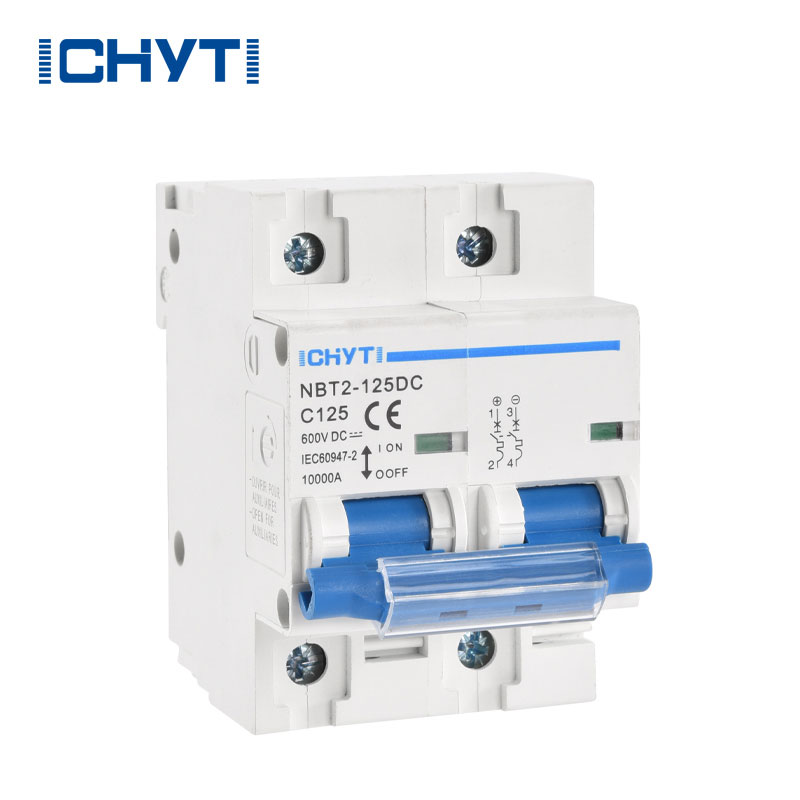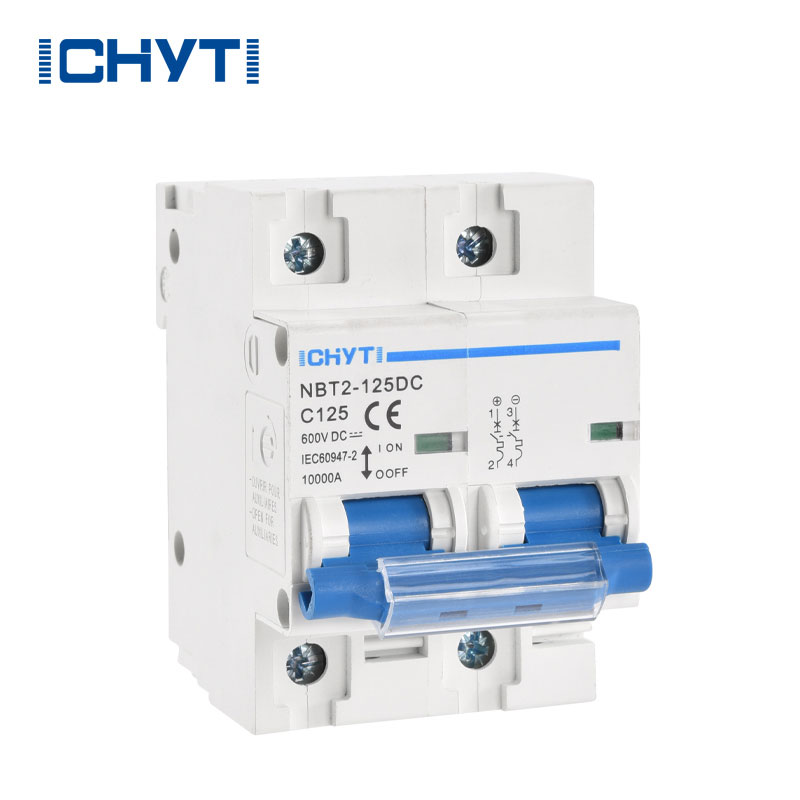
- English
- Español
- Português
- русский
- Français
- 日本語
- Deutsch
- tiếng Việt
- Italiano
- Nederlands
- ภาษาไทย
- Polski
- 한국어
- Svenska
- magyar
- Malay
- বাংলা ভাষার
- Dansk
- Suomi
- हिन्दी
- Pilipino
- Türkçe
- Gaeilge
- العربية
- Indonesia
- Norsk
- تمل
- český
- ελληνικά
- український
- Javanese
- فارسی
- தமிழ்
- తెలుగు
- नेपाली
- Burmese
- български
- ລາວ
- Latine
- Қазақша
- Euskal
- Azərbaycan
- Slovenský jazyk
- Македонски
- Lietuvos
- Eesti Keel
- Română
- Slovenski
- मराठी
- Srpski језик
Circuit Breaker For Solar Panels
As one of professional manufacturers in China, CHYT would like to provide you Circuit breaker for solar panels. And we will offer you the best after-sale service and timely delivery.
Send Inquiry
CHYT a reputable manufacturer in China, is willing to offer you Circuit breaker for solar panels. We promise to provide you with the best after-sale support and prompt delivery. Its rated current shall not exceed 63A.
Our Circuit Breaker for Solar Panels is an efficient and durable solution that ensures the safety and reliability of your solar panel system. With its innovative design and advanced technology, our circuit breaker protects your home or business from power surges and overloads, ensuring that your solar panel system operates efficiently and effectively.
Our Circuit Breaker for Solar Panels is made from high-quality materials to ensure durability and longevity. It is designed to withstand extreme weather conditions and protect against fire and electric shocks. Additionally, it features automatic shut-off protection, which disconnects the circuit in the event of a short circuit or overcurrent of the system.
ICHYTI Circuit Breaker For Solar Panels Parameter (Specification)
|
Product Model |
|
NBL7-63 |
||
|
Pole |
|
1P |
2P |
4P |
|
Frame Current |
|
63A |
||
|
Rated Current |
In |
6, 10, 16, 20, 25, 32, 40, 50z63A |
||
|
Rated Working Voltage |
Ue(DC) |
300V |
500/600/1000V |
1000V |
|
Rated Insulation Voltage |
Ui |
1200V |
||
|
Rated Impulse Withstand Voltage |
Uimp |
6kV |
||
|
Breaking Capacity |
leu |
6 KA |
||
|
Tripping Characteristic |
|
C |
||
|
Tripping Type |
|
Thermal Magnetic |
||
|
Electrical Life |
Actual |
500 Cycles(63A Frame) |
||
|
Standard |
300 Cycles |
|||
|
Mechanical Life |
Actual |
10000 Cycles(63A Frame) |
||
|
Standard |
9700 Cycles |
|||
|
Overvoltage Category |
|
III |
||
|
Pollution Degree |
|
3 |
||
|
Ingress Protection |
|
IP40 Wiring Port IP20 |
||
|
Resistance To Humidity And Heat |
|
Class 2 |
||
|
Terminal Capacity |
|
2.5 x 35mm2 |
||
|
Fastening Torque Of Terminals |
|
2.0℃ 3.5Nm |
||
|
Ambient Temperature |
|
-30℃〜+70℃ |
||
|
Storage Temperature |
|
-40℃〜+85℃ |
||
|
Installation Method |
|
DIN |
||
|
Standard |
|
IEC60947-2 |
||
ICHYTI Circuit Breaker For Solar Panels Feature
◉ Designed for photovoltaic energy storage and other DC applications, with a rated voltage of up to 1000V.
◉ Comply with AS60947.3-2018 and IEC60947.1-2015 standards.
◉ Provide a 2-year warranty, product insurance, and recall insurance.
◉ This product is suitable for photovoltaic energy storage and other DC applications, with a voltage of up to 1000V, complying with AS60947.3-2018 and IEC60947.1-2015 standards, and providing a 2-year warranty, product insurance, and recall insurance.
ICHYTI dc miniature circuit breaker Details

ICHYTI Circuit Breaker For Solar Panels Dimensions and wiring

ICHYTI Circuit Breaker For Solar Panels FAQ
Q: Do You have office in shanghai or guangzhou that i can visit?
A: Our office is in Wenzhou.
Q: Can I only buy some spare parts from you?
A: Of course, I believe that long-term cooperation starts with small orders.
Q: Can you send your equipment to my warehouse in guangzhou?
A: Yes, for small orders, we will send them to Guangzhou free of charge.
So how can businesses build a positive reputation in their industry? There are several strategies and best practices that can help, including:
1. Quality products or services: The most basic requirement for building a strong industry reputation is to offer high-quality products or services that meet the needs and expectations of customers. This requires a deep understanding of customer preferences, as well as a commitment to continuous improvement and innovation.
2. Ethical conduct: Businesses that want to build a positive reputation must operate with integrity and transparency, complying with all relevant laws and regulations. They should also be committed to ethical business practices, such as treating employees, customers, and suppliers fairly and respectfully.
3. Thought leadership: A business that establishes itself as a thought leader in its industry can attract positive attention and respect from stakeholders. This requires a commitment to staying up-to-date on industry trends and sharing insights and expertise with others through blog posts, white papers, and other content.
4. Customer engagement: Building a strong relationship with customers is critical to maintaining a positive industry reputation. This requires regular communication, listening to customer feedback, and responding promptly to concerns and complaints.
5. Community involvement: Businesses that are active in their local communities can build goodwill and a positive reputation among stakeholders. This may involve volunteering, supporting local charities, and sponsoring events or initiatives that benefit the community.
Ultimately, building a strong industry reputation is an ongoing process that requires commitment and dedication. By following these best practices and focusing on delivering value to customers, businesses can establish themselves as trusted and respected players in their industry.

